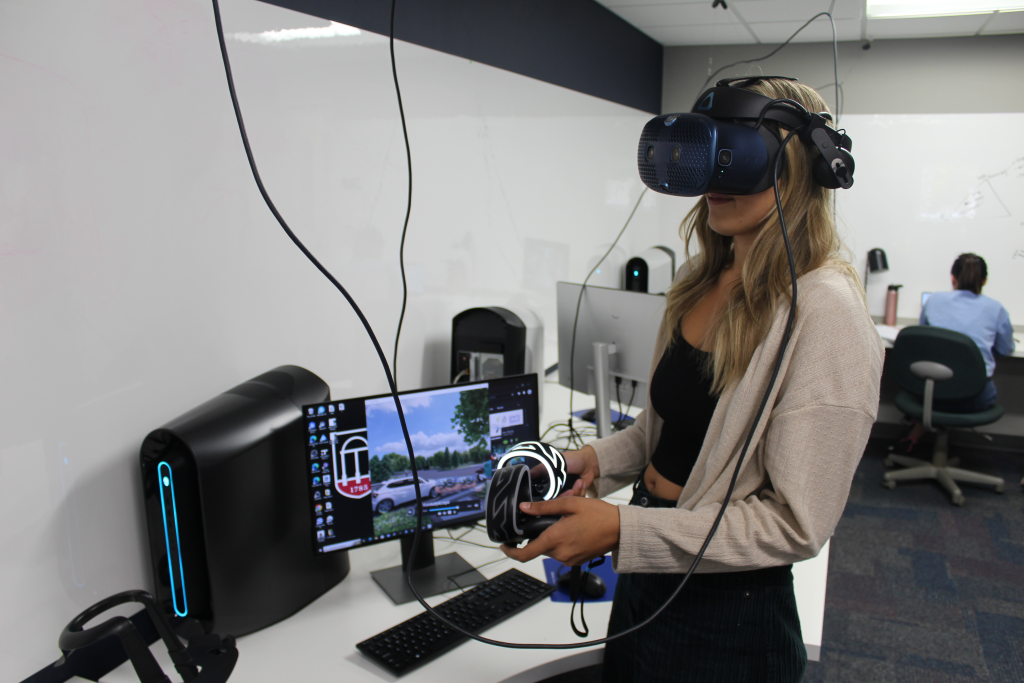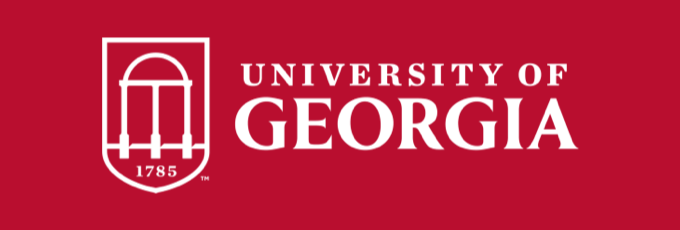In the heart of Georgia, where innovation meets tradition, the University of Georgia’s College of Environment + Design (CED) stands as a beacon in shaping the future stewards of a changing world. Here, you’ll be challenged to solve contemporary issues by working with faculty and, in some cases, local communities through design charrettes. You’ll connect with clients, community organisations, planning agencies and an accomplished alumni network. You’ll network with visiting professors, professionals, and lecturers from a broad range of disciplines. You’ll critically reflect on past and present design, planning, and preservation practices and propose ways in which design, planning and preservation can be a positive force for social and environmental change.
The CED is where you’ll prepare to shape the world as the next generation of designers, preservationists and planners. Four graduate programmes best exemplify this transformation from student to changemaker:
Landscape Architecture
CED’s Master of Landscape Architecture programme is one of the most established and highly regarded in the United States, boasting a large renowned faculty in a curriculum structured to fuse art and design with ecology, engineering, and construction. The programme has long been recognized for its impact in developing skills in creative problem solving, design and masterplanning, designed ecologies, sustainable design, and excellent preparation for professional practice. Students work closely with faculty in the design studios, in research teams, and in individual research and design thesis authorship. A national and global alumni network provide mentoring and student support, and easy transition to practice.
Through community engagement in service learning projects, the programme provides the development of the knowledge, skills and values required to attend to the health, safety and welfare needs of people, communities and the environment. The programme is nationally accredited and is recognized as a STEM discipline by the U.S. department of homeland security, allowing an extended three-year Optional Practical Training (OPT) for international students.
When asked why he is pursuing an MLA, student Jabari Lottie had this to say: “I am pursuing the MLA to learn how to creatively solve human errors in the environment, alter the way we look at urban landscape, and increase the efficiency of utilizing natural sciences in the built and managed environment.”

Source: University of Georgia
Urban Planning and Design
For those with a passion for physical planning and design of the built environment, the Master of Urban Planning and Design beckons. With a unique focus on visual graphics and graphic design applications, this studio-based curriculum enables you to develop and employ new ideas and technologies and promotes innovation by students in a variety of local, regional, and international projects.
Three planning and design studios in the curriculum introduce students to the fundamental knowledge and technical skills, tools, and methodologies that are used in the planning practice, with particular emphasis on research, analysis, developing visions and for the implementation of various projects for the built environment.
All of the program faculty have successful international professional experiences in the field in addition to their academic achievements and engage students with hands-on learning as well as development of new knowledge. This boutique program, accredited by the American Planning Association, also provides excellent opportunities for communication and learning beyond the classroom with diverse faculty and students in one of the best college towns in USA. Our domestic and international alumni have been recognized with their knowledge and professional skills in public, private, and non-profit organizations as well as in academia.
Historic Preservation
CED’s Master of Historic Preservation programme comprises small cohorts of diverse students from a broad spectrum of ages and experience. Through the CED FindIt Historic Resource Survey Partnership, students are able to engage in real-life surveys of historical and cultural resources, providing them with invaluable hands-on training. The programme ensures that preservationists are well-equipped to contribute to championing causes dear to them.
As graduate and Associate Director of History and Survey Coordinator at New South Associates Summer Ciomek puts it, “I was immediately drawn to the programme. It also seemed well-rounded, requiring classes in theory, architectural history, technical drawing, etc. The program had a good mix of practical, hands-on classes and more academic-oriented coursework.”
“Not only have I learned about bridge types, water tower types, and gas station types, but I’ve learned a lot about military history and buildings, everything from WWII Army depots to Naval air bases and Cold War-era National Guard facilities,” she adds.

MLA student Arianne Wolfe presents the masterplan for a new urban plaza to a professional jury. Source: University of Georgia
Environmental Design and Planning
Those seeking to delve into advanced research and contribute to the future of environmental design and planning may wish to take up a PhD in Environmental Design and Planning. Uniquely housed within CED’s three discipline areas — landscape architecture, environmental planning, and historic preservation — this programme embodies the college’s culture of research, design, and sustainable implementation.
The programme’s standout feature lies in its faculty’s expertise in geodesign and GIS, differentiating itself from its contemporaries. Leveraging their expertise, doctoral student Žaklina Grgić is tackling a complex issue affecting young adults across Southeastern Europe: affordable housing.
She’s focusing on Zagreb, Croatia, a post-socialist city whose population has risen significantly since World War II. This was compounded, in recent years, by skyrocketing housing prices. “I hope my research will shed more light on what emerging adults are experiencing, not only in Zagreb, Croatia but in other post-socialist cities and countries,” she says. “Affordable housing in the post-socialist city is a crisis that forces emerging adults to leave the country, which creates all sorts of sociodemographic issues.”
Explore CED’s many offerings and embark on the journey to become a steward of a changing world today, or reach out via its social media channels on Instagram, Facebook and LinkedIn.














